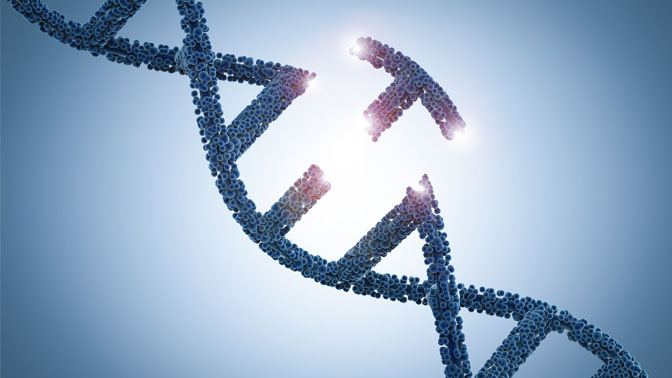
It is always useful to have a backup plan, especially when it comes to deciding how to treat cancer.
Having more information about a cancer’s genetic makeup enables clinicians and patients to make faster and more effective treatment decisions using a precision medicine approach. Yet, gathering complete genetic data in a timely manner remains a challenge.
Current clinical practice guidelines recommend that individuals recently diagnosed with lung cancer—the leading cause of cancer-related death—have their cancer tested for at least eight cancer-related genetic changes. However, despite these recommendations, a large number of patient tumours are not tested.
“In lung cancer, there are a number of approved drugs that may benefit individuals with certain changes in their tumour DNA,” explains Dr. Natasha Leighl, lead author of the study and medical oncologist at Princess Margaret Cancer Centre. “Testing for these changes (known as biomarkers) can identify patients who are likely to benefit from treatment with targeted therapy.”
Incomplete genetic testing is common for a number of reasons, including the lack of sufficient tumour tissue, and the fact that testing can take a considerable amount of time. Consequently, treatments are often started before the results become available, as patients are unable to wait.
To address this issue, Dr. Leighl’s team evaluated a quicker and simpler approach to profile cancers using tumour DNA that is present in the blood.
They found that the blood test was faster at returning results, identified biomarker changes at a rate comparable to profiling tumour tissue and increased the number of individuals who received complete biomarker analysis.
“Our findings suggest that biomarker testing of patients using tumour DNA found in blood is a suitable alternative in scenarios where tumour tissue and time are limited,” says Dr. Leighl.
This work was sponsored by Guardant Health. Dr. Leighl is supported through the Princess Margaret Cancer Foundation through the OSI Pharmaceuticals Foundation Chair in Cancer New Drug Development.
Leighl NB, Page RD, Raymond VM, Daniel DB, Divers SG, Reckamp KL, Villalona-Calero MA, Dix D, Odegaard JI, Lanman RB, Papadimitrakopoulou VA. Clinical Utility of Comprehensive Cell-Free DNA Analysis to Identify Genomic Biomarkers in Patients with Newly Diagnosed Metastatic Non-Small Cell Lung Cancer. Clin Cancer Res. 2019 Apr 15. doi: 10.1158/1078-0432.CCR-19-0624.




